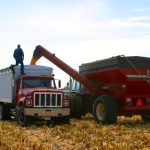A national framework is needed if carbon markets are to be profitable for farmers and companies, a new report says. RBC’s Climate Action 2024 report suggests that Canada lags the U.S., Brazil and China in its issuance of forestry and land use carbon credits, a category that would include agriculture, despite Canada’s early adoption of sustainable farming














